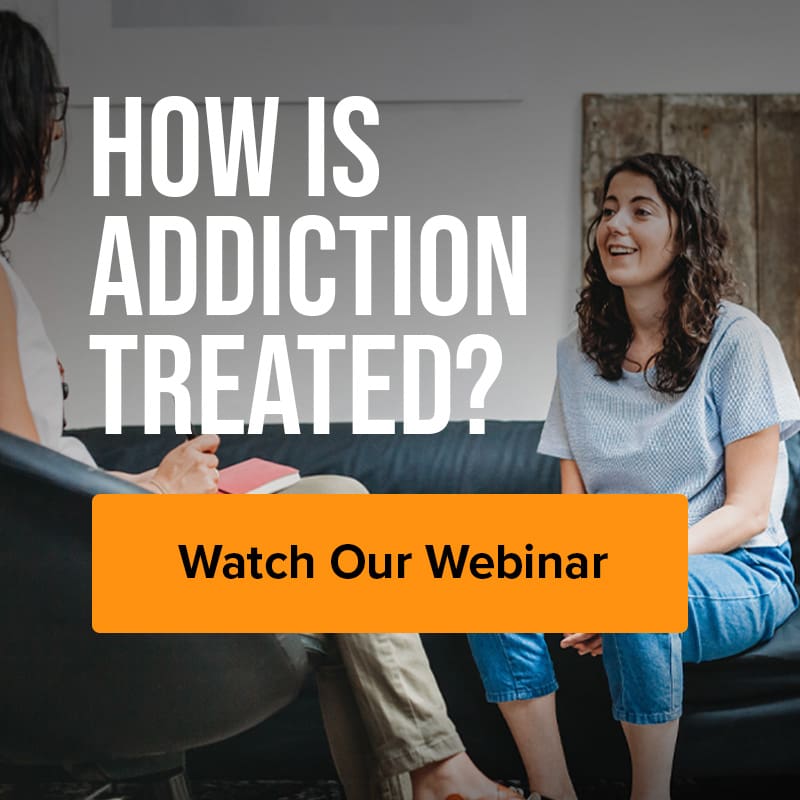So, you know someone with drug addiction or alcoholism, and you want to help them, but you have no idea where to start? We understand that approaching such conversations constructively can be very difficult.
This article explains how to help someone with drug addiction or alcoholism. It describes effective ways of communicating to help your loved one make progress towards recovery.
The Five Stages of Change is a useful psychological model which represents the stages that people go through from unacknowledged addiction to stable recovery.
Understanding the Five Stages of Change will help you recognize the stage your loved one is currently in, allowing you to help them in the ways that are most effective for that particular stage.
Isolation Make Addiction Worse
Isolation is straining many people’s physical and mental health. Some people have been giving up their daily routines and activities that previously provided enjoyment and stability. This places an even greater burden on friends and family members with drug or alcohol addiction, who are facing unprecedented levels of fear, frustration, uncertainty, and loneliness.
Interpersonal relationships are also being tested. With all of the stress, fear, and uncertainty compounded by isolation, social tensions are undoubtedly rising. This all makes it especially challenging to figure out how to help someone with drug addiction or alcoholism.
Speak With Compassion and Listen Without Judgment
When you’re trying to help someone with drug addiction or alcoholism, what you say matters a lot. Even more important, however, is the tone that you use. Speaking with compassion means communicating from a place of love and best intentions for the person. It requires doing your best to understand how your loved one feels. It means listening with empathy and not judging them in any way. Ensure that they feel heard and validate their struggle. Make sure they understand that you want them to get better because you love them and want what’s best for them.
Shame. Fear. Isolation. Regret. Helplessness. Pain. Hopelessness.
These sorts of feelings fuel drug and alcohol addiction. The antidote to these emotions is compassion, which involves helping your family member feel supported, connected, and loved. Furthermore, by expressing compassionate kindness, you will help your loved one develop self-compassion. And self-compassion is a powerful tool for working towards addiction recovery.[1]
The Five Stages of Change
Researchers have discovered five stages that people go through as they progress from unacknowledged drug or alcohol addiction to stable recovery.[2] The kind of support that someone needs will depend on their current stage of change.
The following descriptions of each stage will help you recognize which stage someone is in. Descriptions of each stage are followed by effective strategies for how to help someone with drug addiction or alcoholism in each stage.
Stage 1: Precontemplation
In the precontemplation stage, a person is not actively thinking about or wanting to change. Often, people in precontemplation are in denial. They don’t see their substance use as a problem. Someone in this stage may also be unable or unwilling to see how their drug or alcohol addiction negatively affects their loved ones.
How to help someone in precontemplation
Because change is not necessarily on the person’s agenda, you need to encourage them, very gently, to start becoming aware of the harm that their addiction is causing. In a non-judgmental way, help them gain awareness and consider the possible benefits of quitting or using less.
Consider the following possible topics when thinking about how to help someone with drug addiction or alcoholism who is in precontemplation:
- Is it possible that they’re becoming increasingly dependent on alcohol or their substance of choice?
- What risks do they face if they continue to use at their current rate?
- What would their life be like if they stopped using or used less?
Sometimes, your loved one may deny that they have a problem, and you may notice that they’re becoming defensive. In such situations, you can bring down the intensity of the conversation by reminding your loved one that, ultimately, it’s their decision whether or not to change—no one else can make the decision for them.
Alternatively, in cases where your loved one is in denial about a severe drug or alcohol addiction that is causing significant harm to themselves and those around them, you should consider staging a drug or alcohol intervention.
Stage 2: Contemplation
In the contemplation stage, a person starts to consider the idea of stopping or reducing their alcohol or substance use. Gradually, a person begins to recognize the negative consequences of their drug or alcohol addiction. However, people in contemplation are often ambivalent and uncertain regarding whether or not they want to change.
How to help someone in contemplation
Use open-ended questions to help the person develop a better understanding of how their life would be different if they stopped using.
- What are the pros and cons of continuing to use?
- How would they benefit if they stopped using or used less?
- What makes it difficult for them to stop using?
- What would life be like if they were in recovery?
By helping your loved one understand and evaluate the costs of their substance use and the benefits of recovery, you can help someone with drug addiction or alcoholism resolve their ambivalence and start taking their first steps towards change.
The contemplation stage is also a good time to remind someone that you’re there for them and that you’ll support them throughout their recovery process. Knowing that they have your support can motivate them to make a decision and start preparing for change.
Stage 3: Preparation
In the preparation stage, a person acknowledges that they have a problem. They know that they want to change. They start creating a plan for how they will overcome their addiction or alcoholism, which includes considering options for getting professional help.
How to help someone in preparation
Acknowledge all the changes that the person is making and encourage them by expressing your appreciation and gratitude. Positive feedback will give your loved one motivation to maintain their momentum as they make progress towards recovery.[3]
You can also help your loved one create their recovery plan by working with them to answer the following questions.
- What treatment options are available?
- What are the benefits of getting professional help?
- What are the challenges and risks of trying to get better without professional help?
- What kind of professional treatment program would be best for them, residential or outpatient?
- What are the relative advantages and disadvantages of in-person treatment versus online treatment.
You can also support your loved one in this stage by helping them do the necessary research for choosing the best treatment program and rehab center for their needs.
Stage 4: Action
In the action stage, people are actively working towards recovery. Someone in this stage will do things such as detoxing, abstaining from drugs and alcohol, seeking recovery resources, and surrounding themselves with people who support their recovery—this includes attending aftercare groups. You’ll see your loved one starting to let go of the crutch that they previously used to cope with the emotional pain that underlies drug and alcohol addiction.
How to help someone in action
During this exciting but challenging phase, continue reminding your loved one that you have their back and that you believe in them.
Self-efficacy is a person’s belief in their ability to successfully achieve their objectives. Research has consistently shown that people with high self-efficacy tend to experience fewer obstacles when working towards recovery.[4] You can help increase your loved one’s self-efficacy by supporting and encouraging them with each successful step they take, and each new step that they attempt.
This stage involves hard work and discomfort for people going through it. Check in with the person often to see how they’re doing and how you can help them. It’s not unusual for people in this stage to experience cravings, and it’s important for them to feel comfortable discussing these feelings with you whenever they arise. Now more than ever, it’s important to be sensitive to signs that your loved one may be struggling and to do your best to offer them support and comfort.
Stage 5: Maintenance
In the maintenance stage, a person has successfully stopped using the substances to which they were addicted. If they had a behavioural addiction, they have stopped compulsively engaging in their problematic behaviours. Now, they focus on maintaining their recovery. They learn new, healthy behaviours which they try to perform consistently to create habits for a new, healthy life. A person in this stage should have a clearly defined aftercare plan to ensure consistent participation in aftercare. This could include individual counselling, support groups, or outpatient programs.
How to help someone in maintenance
Celebrate your loved one’s progress and congratulate them for all that they’ve accomplished—overcoming addiction might be the biggest challenge a person will ever face! Express your great respect, admiration, and appreciation for their efforts and achievements.
If they don’t already have one, now’s a good time to help your family member develop a relapse-prevention plan.
- What strategies and tools can they use to maximize their chances of successfully maintaining long-term recovery?
- One example of an effective tool is the Wagon app, a relapse-prevention plan on your phone—it gives you daily reminders to perform healthy activities, provides easy access to your most effective coping strategies, includes a journal to record the feelings and triggers that you experience each day, and tracks your progress towards recovery goals.
- Create a list of people to whom they’d feel comfortable reaching out for help, if they ever felt that they were in danger of relapse.
- Help them clearly define the steps that they would take for getting back into recovery if they ever did relapse.
Relapse Is a Learning Opportunity—Not a Failure
Addiction is a chronic condition which can cause brain adaptations that persist for a long time after a person stops using drugs or alcohol. Research suggests that between 40 and 60 percent of people treated for addiction will relapse and use substances again at some point after completing treatment.[5] This means that it’s also important to know how to help someone with drug addiction or alcoholism when they relapse.
To begin with, you should urge your loved one to take every possible precaution to minimize their chance of relapse. However, if your loved one ever does relapse—avoid judging them! Don’t view it as a failure and don’t be disappointed. Furthermore, help your loved one to frame their relapse as a learning opportunity, and not as a failure—this will help get them back into recovery faster. It’s critically important to avoid shaming them, since feeling shame is highly counterproductive to the work necessary to get back into recovery.
Help your loved one understand how and why their relapse occurred, and use this knowledge to develop new relapse-prevention strategies so that their recovery will be more robust in the future.
- What were their triggers?
- How could they have managed the situation more effectively?
- What can they do to avoid relapse when faced with similar situations in the future?
- Design and write down new relapse-prevention strategies.
In addition to helping your loved one learn from their relapse, you also need to ensure that they stay accountable going forward.
- Help them create a clearly defined plan for getting back into recovery.
- Help them practice new relapse-prevention strategies and implement them in real-life situations.
- Check in with them regularly to ensure that they’re following their plan and making steady progress towards getting back into recovery.
Most People with Addiction Need Professional Treatment
Overcoming drug or alcohol addiction is a very challenging process and most people need professional help to achieve successful long-term recovery. Emphasize to your family member that getting help does not mean they’re weak or incompetent. Explaining the following points to your loved one can help persuade them that getting professional help is often the best choice.
- Addiction is a chronic, complex condition that affects different people in different ways.
- One-size-fits-all solutions are not very effective at producing lasting results.
- Individualized treatment provided by experts is often required for life-changing outcomes.
- Detox can be intensely uncomfortable, and, in some cases, withdrawal symptoms can be life threatening. Hence, medical supervision is very important for detox.
- People with addictions often have undiagnosed concurrent mental health disorders and medical problems.[6] A comprehensive treatment program can address all these concerns at the same time, maximizing a person’s chances of achieving successful long-term recovery.
How to Help Someone with Drug Addiction or Alcoholism When They Won’t Talk About It
Recovery requires courage. By discussing their difficulties with you and acknowledging that they have a problem, your loved one is making themselves very vulnerable. This can be incredibly scary, especially for people in the precontemplation or contemplation stages. What can you do about it?
Get support for yourself
If your family member’s drug or alcohol addiction causes you distress, you can seek out a psychotherapist for support. Discussing your situation with a mental health professional can help you manage the powerlessness, frustration, and fear that you feel as a result of your family member’s addiction. You may also choose to proactively approach an addiction specialist who can provide further guidance on how to best help your family member and motivate them to start their recovery process.
Hire a professional interventionist and stage an intervention
Staging a drug or alcohol intervention involves gathering a handful of close friends and family and having a conversation together with your loved one about how their addiction is negatively affecting them and everyone around them. The objective is to persuade the person to recognize the harm that they’re causing and to agree to a proposed treatment plan.
Interventions require careful planning and preparation. They will also usually involve difficult and emotionally intense conversations. For these reasons, among others, you should hire a professional interventionist who can both help with the preparation and also guide the conversation to ensure that it’s as productive as possible. Read our guide to learn more about how to stage a drug or alcohol intervention.
It’s Their Recovery—but You Can Make a Big Difference
Remember that lasting change takes time. Also, no matter how strongly you feel about someone else’s addiction, you can’t force them to change. You can lead a horse to water—but only your loved one can make the decision to change. Nevertheless, you have enormous potential to positively influence their recovery process and help them succeed. One of the best approaches for helping a family member with drug addiction or alcoholism is recognizing their current stage of change and helping them in the ways that are most effective for that stage.
A Team That Supports Your Recovery Goals
The staff at our EHN Canada facilities are both compassionate and highly skilled, which makes them able to offer the most current, evidence-based forms of treatment. In working with our integrative team, you get the benefit of expertise from several specialists. The result is a structured and holistic addiction recovery program that offers a high degree of success.
Call us at one of the numbers below to start a conversation about how we can help you.
Bellwood (Toronto, ON): 1-800-387-6198
Edgewood (Vancouver Island, BC): 1‑800‑683‑0111
Ledgehill (Lawrencetown, NS): 1-800-676-3393
Sandstone (Calgary, AB): 1-587-350-6818
Gateway (Peterborough, Ontario): 1-705-535-0636
Nouveau Depart (Montreal, Quebec): 1-888-488-2611
EHN Online: 1-888-767-3711
References
- [1] Phelps, C. L., Paniagua, S. M., Willcockson, I. U., & Potter, J. S. (2018). The relationship between self-compassion and the risk for substance use disorder. Drug and Alcohol Dependence, 183, 78-81. Retrieved from https://self-compassion.org/wp-content/uploads/2018/05/Phelps2018.pdf
- [2] Prochaska, J. O., Redding, C. A., & Evers, K. E. (2015). The transtheoretical model and stages of change. Health Behavior: Theory, Research, and Practice, 125-148. Retrieved from https://www.researchgate.net/profile/Daniel_Montano2/publication/233894824_Theory_of_reasoned_action_theory_of_planned_behavior_and_the_integrated_behavior_model/links/0a85e53b67d742bc29000000.pdf#page=164
- [3] Kellogg, S. H., & Tatarsky, A. (2012). Re-envisioning addiction treatment: A six-point plan. Alcoholism Treatment Quarterly, 30(1), 109-128. Retrieved from https://www.tandfonline.com/doi/abs/10.1080/07347324.2012.635544
- [4] Nikmanesh, Z., Baluchi, M. H., & Motlagh, A. A. P. (2017). The role of self-efficacy beliefs and social support on prediction of addiction relapse. International Journal of High Risk Behaviors and Addiction, 6(1). Retrieved from http://jhrba.com/articles/13118.html
- [5] National Institute on Drug Abuse. (2014, July). Drugs, Brains, and Behavior: The Science of Addiction. Retrieved from https://safespace.org/drugs-brains-and-behavior-the-science-of-addiction/
- [6] Sevelko, K., Bischof, G., Bischof, A., Besser, B., John, U., Meyer, C., & Rumpf, H. J. (2018). The role of self-esteem in Internet addiction within the context of comorbid mental disorders: Findings from a general population-based sample. Journal of Behavioral Addictions, 7(4), 976-984. Retrieved from https://akademiai.com/doi/abs/10.1556/2006.7.2018.130




